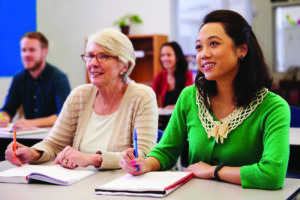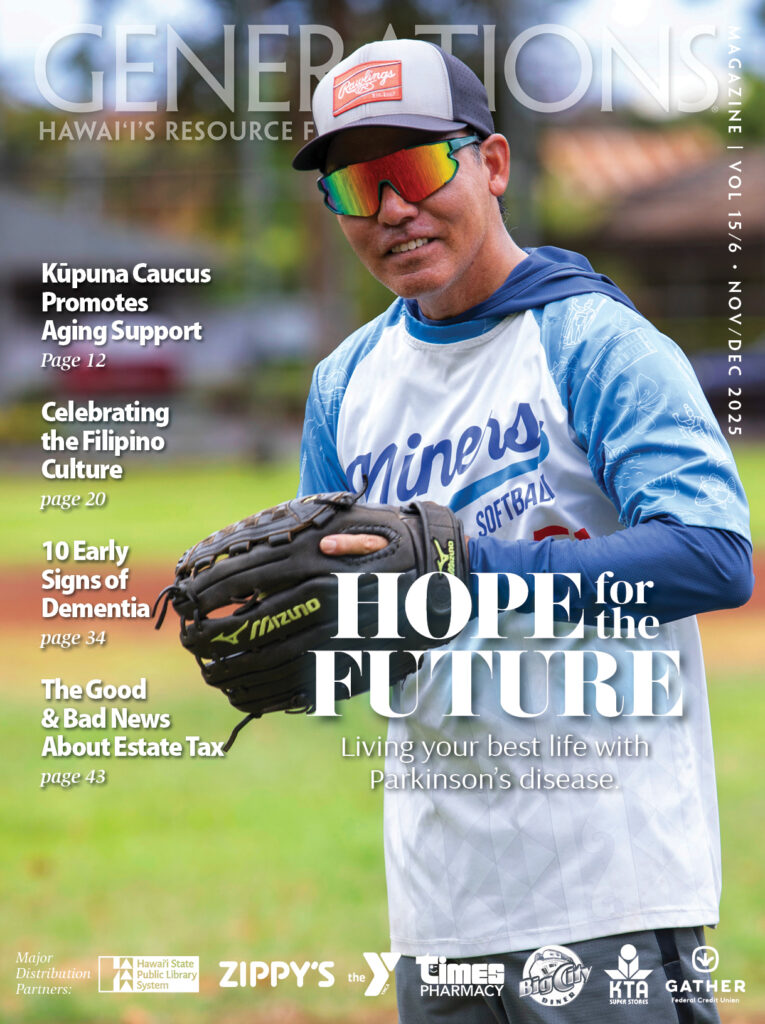 The population structure in the U.S. is rapidly changing. Increased life expectancy, strong immigration and a fertility rate of presently 1.64 children per woman — higher than in other developed countries — will cause a population increase from 336 million (2023) to 373 million (2053). The population ages 60 and older will experience the strongest growth, and their share in the total population is expected to increase from 12 percent (1950) to 28 percent (2050). These developments are also visible in Hawai‘i. Estimates suggest that more than a quarter of the population in the state will be aged 60+ by 2030.
The population structure in the U.S. is rapidly changing. Increased life expectancy, strong immigration and a fertility rate of presently 1.64 children per woman — higher than in other developed countries — will cause a population increase from 336 million (2023) to 373 million (2053). The population ages 60 and older will experience the strongest growth, and their share in the total population is expected to increase from 12 percent (1950) to 28 percent (2050). These developments are also visible in Hawai‘i. Estimates suggest that more than a quarter of the population in the state will be aged 60+ by 2030.
These demographic developments create new societal challenges, such as for retirement and healthcare systems, but education in older age has the potential to transform such challenges into opportunities. A 2019 study by Xu et al. in JAMA Neurology found lifelong learning and engagement in cognitive training to be one of the most significant modifiable factors in reducing the risk of dementia and depression. Also other research suggests that learning provides numerous benefits for kūpuna with respect to cognitive functioning, overall well-being and health, self-confidence and social inclusion.
Although learning in old age benefits society and the individual, enrollment data indicate that traditionally older adults have been underrepresented in organized education. Nevertheless, mature adults in our community can choose from a rich assortment of educational programs and providers, including the following:
✦ Osher Lifelong Learning Institutes: As one of the 125 OLLIs in the United States, the OLLI at the University of Hawai’i at Mānoa (OLLI-UHM) is a membership-based educational program that offers mature adults aged 50+ a wide array of non-credit college-level courses, workshops, lectures and other events that enrich the mind and foster a community of learners. Classes are held at the UH Mānoa campus or online via Zoom and include topics such as arts, music, history, politics, health and mindfulness. Membership ($75 per term, $50 for new members) is open to all interested kūpuna and entitles individuals to enroll in 3+ courses per term.
✦ University of Hawai‘i: At multiple campuses (e.g., UH Mānoa, Windward Community College, Kauai Community College), kūpuna can take university classes free of charge through their Senior Citizen Visitor Programs (SCVPs). While the various SCVPs can differ in their administration, they typically do not require formal educational degrees and grant course access on a space available basis with prior registration and faculty approval.
✦ Outreach College: At UH Mānoa offers a diverse array of non-credit and credit courses to help participants of all age groups pursue personal growth and professional development.
✦ Department of Parks and Recreation’s Senior Citizens Program: With 32 locations on O‘ahu, these programs strives to improve the quality of life of kūpuna in the community through various activities, such as business meetings, speakers, community service, excursions and luncheons.
✦ Front Porch’s Well Connected: For kūpuna over the age of 60 who want to take classes from the comfort of their home, this national non-profit organization program provides an array of educational programs in person and online.
HAWAII PACIFIC GERONTOLOGICAL SOCIETY
(501(c) 3 nonprofit)
PO Box 3714, Honolulu, HI 96812
Sherry Goya, HPGS Executive Director
808-722-8487 | Sgoyallc@Aol.com
hpgs.org


Leave a Reply